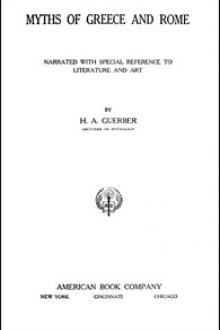Genre Philosophy. Page - 17
No registration or authorisation! And it is all for free!

veloped and brought forth, like the culture of that obstinate but beautiful flower, the orchid. To allow it to remain dormant is to place one's self in obscurity, to trample on one's ambition, to smother one's faculties. To develop it is to individualize all that is best within you, and give it to the world. It is by an absolute knowledge of yourself, the proper estimate of your own value.""There is hardly a reader," says an experienced educator, "who will not be able to

In English-speaking countries the Church has been at a disadvantage in the way in which she has had to expound her doctrine, for she has been forced for many years to limit her attention just to those parts of her teaching wherein the Protestant bodies parted company from her. Without any desire to stir up barren controversy, she has naturally in self-defence been at pains most precisely to define those portions of her gospel most likely to be misunderstood. This has resulted, unfortunately, in

ers, overbalanced by curiosity; and despair, which, at some moments, prevails, may give place afterwards to sanguine hopes and expectations. Accurate and just reasoning is the only catholic remedy, fitted for all persons and all dispositions; and is alone able to subvert that abstruse philosophy and metaphysical jargon, which, being mixed up with popular superstition, renders it in a manner impenetrable to careless reasoners, and gives it the air of science and wisdom.8. Besides this advantage

explains the coming into being offire, wind, clouds, water, and earth, as due to a condensation andexpansion of the universal principle, air. The boldness of theirspeculations we may explain as due to a courage born of ignorance, butthe explanations they offer are scientific in spirit, at least.Moreover, these men do not stand alone. They are the advance guard ofan army whose latest representatives are the men who are enlighteningthe world at the present day. The evolution of science--taking

n the day.If we further analyse our vague, uneasy aspiration, we shall, I think, see that it springs from a fixed idea that we ought to do something in addition to those things which we are loyally and morally obliged to do. We are obliged, by various codes written and unwritten, to maintain ourselves and our families (if any) in health and comfort, to pay our debts, to save, to increase our prosperity by increasing our efficiency. A task sufficiently difficult! A task which very few of us

NS IN ENGLAND DURING THE REIGN OF QUEEN MARY.The words and behaviour of Lady Jane upon the scaffold 204 John Rogers, Vicar of St. Sepulchre's, &c. 205 The Rev. Mr. Lawrence Saunders 207 History, imprisonment, and examination of John Hooper 209 Life and conduct of Dr. Rowland Taylor, of Hadley 212 Martyrdom of Tomkins, Pygot, Knight, and others 214 Dr. Robert Farrar 216 Martyrdom of Rawlins White 217 The Rev. Mr. George Marsh 218 William Flower 220 The Rev. John Cardmaker, and John Warne 221
The Babylonian Legends of the Creation, Ernest Alfred Wallis Budge [best short books to read .TXT] 📗

s, in which he says: "But theBabylonians, like the rest of the Barbarians, pass over in silence theOne principle of the Universe, and they conceive Two, TAUTHE andAPASON; making APASON the husband of TAUTHE, and denominating her themother of the gods. And from these proceeds an only-begotten son,MOYMIS, which I conceive is no other than the Intelligible Worldproceeding from the two principles. From these, also, another progenyis derived, DACHE and DACHUS; and again, a third, KISSARE and

t as though I had stumbled into the eighteenth century and were calling on Giambattista Vico. After a brief inspection by a young man with the appearance of a secretary, I was told that I was expected, and admitted into a small room opening out of the hall. Thence, after a few moments' waiting, I was led into a much larger room. The walls were lined all round with bookcases, barred and numbered, filled with volumes forming part of the philosopher's great library. I had not long to wait. A door

ring their emotional set and stock of ideas, by sharing in what the elders are doing. In part, this sharing is direct, taking part in the occupations of adults and thus serving an apprenticeship; in part, it is indirect, through the dramatic plays in which children reproduce the actions of grown-ups and thus learn to know what they are like. To savages it would seem preposterous to seek out a place where nothing but learning was going on in order that one might learn.But as civilization

Greatly dissatisfied with the treatment her children had received at their father's hands, Gæa remonstrated, but all in vain. Uranus would not grant her request to set the giants free, and, whenever their muffled cries reached his ear, he trembled for his own safety. Angry beyond all expression, Gæa swore revenge, and descended into Tartarus, where she urged the Titans to conspire against their father, and attempt to wrest the scepter from his grasp. [Sidenote: The Titans revolt.] All listened